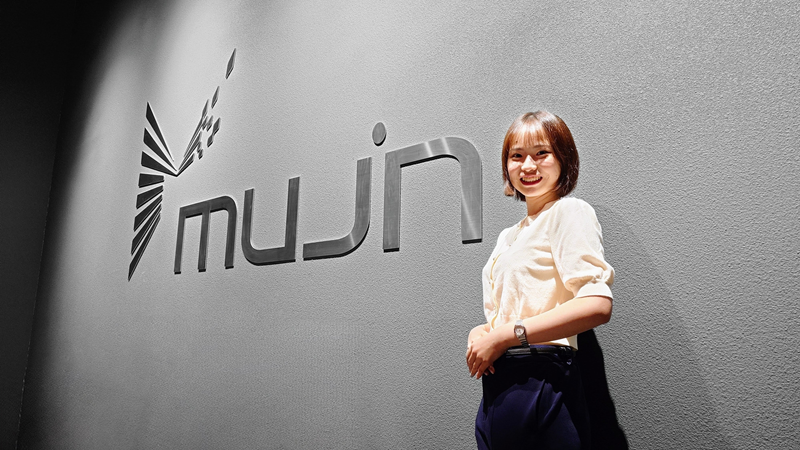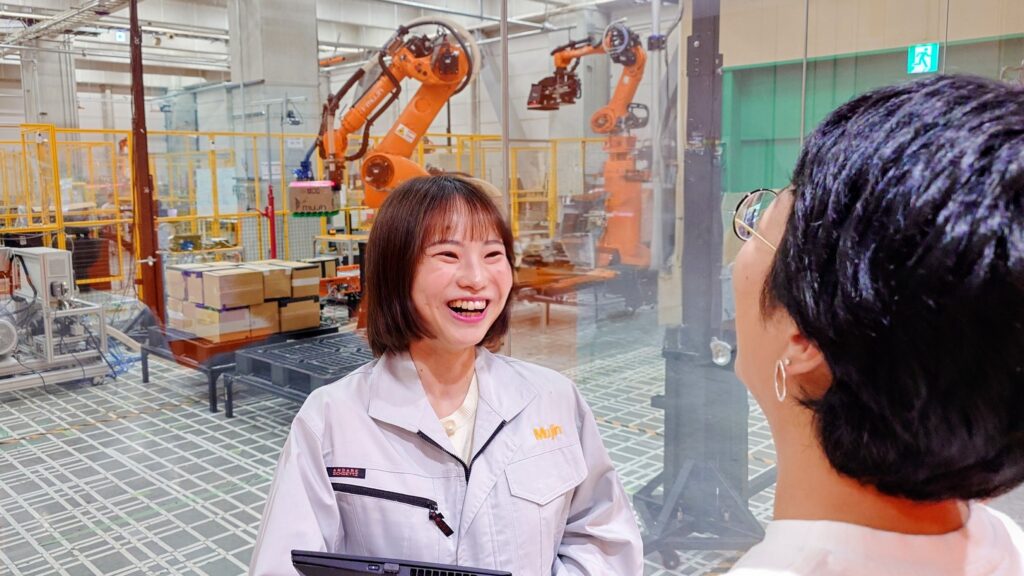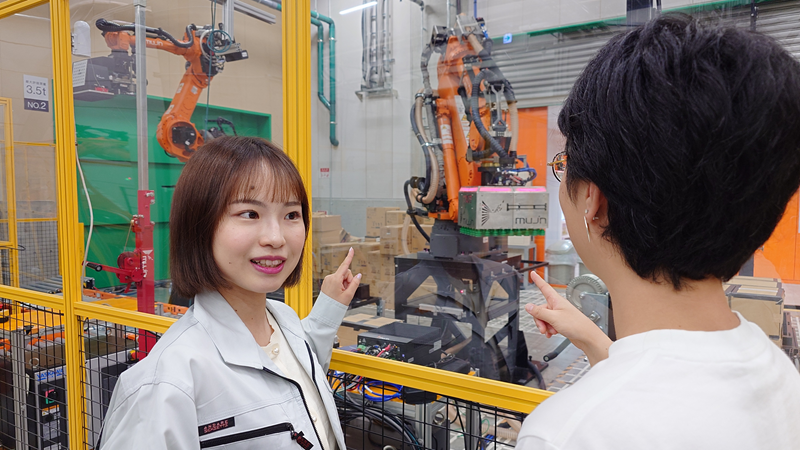This year, Mujin welcomed its first-ever legal intern, Kanaha, who spent two valuable months working alongside the Mujin Legal team.
Currently enrolled at the University of Tokyo Law School, she first learned about Mujin when our co-founder Issei Takino spoke at a university entrepreneurship program. That encounter inspired her to apply for an internship with us.
We spoke with Kanaha about what drew her to Mujin, what she learned during her time here, and how she experienced the dual nature of corporate legal work — both “defensive” and “proactive.”

How did you discover Mujin’s internship and decide to apply?
I first encountered Mujin in a course called Special Topics in Entrepreneurship at my university, where Mujin’s co-founder and CEO Issei gave a guest lecture. His talk was incredibly inspiring, and I was immediately drawn to the company’s mission and mindset.
After the lecture, I attended a networking session where I learned that Mujin was offering several internship positions — each department running its own recruitment independently, which I found quite unique.
Initially, I was interested in the consulting department, but after talking directly with members of the Legal team, I realized that joining them would allow me to apply what I’ve been studying most effectively. That’s when I decided to join Mujin as a legal intern.
Why did you choose an in-house legal internship at a growing tech company, rather than a law firm?
For most law students, it’s common to intern at a law firm. However, I was drawn to Mujin’s Legal team because I believed I could grow in ways that only come from being at the heart of a business. Two main reasons stood out to me.
First, I wanted to experience legal work from an in-house perspective — to see how corporate lawyers think, how they influence decision-making, and how they contribute to business strategy.
Second, I was fascinated by the opportunity to work in a cutting-edge industry like robotics. After hearing Issei’s lecture, I felt the immense potential and social impact of this field. The Legal team explained that robotics involves complex issues around intellectual property and corporate law, with team members specializing in different areas. I was intrigued by how legal expertise could support technological innovation in such a fast-evolving industry.
Another deciding factor was the internship’s two-month structure. Unlike typical law firm internships that last only a few days as part of recruitment activities, Mujin’s program offered a chance to gain hands-on, practical experience — exactly what I was looking for.
Even though I had no prior experience in robotics, I decided to take the leap and challenge myself in this completely new environment.

What was the most memorable project you worked on?
The most memorable project was updating the company’s compliance training materials for new employees. I was entrusted with the entire process — from selecting the topic to researching legal precedents, reflecting recent legal revisions, and preparing the final presentation materials.
The challenge was to communicate complex legal concepts clearly and engagingly within a 20-minute session for employees who may not have legal backgrounds. It taught me the importance of both deep understanding and empathy for the audience’s perspective.
Through this project, I gained valuable insight into corporate governance, interdepartmental coordination, and how legal frameworks connect to employee behavior — all experiences unique to in-house legal work.
I also had opportunities to review real legal documents, such as NDAs, basic transaction agreements, and internal safety standards — not hypothetical cases, but real, impactful materials.
One moment that stood out was when I found that part of an internal construction safety document was still based on outdated building standards. That discovery helped me appreciate the complexity of keeping businesses compliant amid constantly evolving regulations.
Another major highlight was having mentorship from both an international attorney and an experienced paralegal, who provided practical feedback from different professional perspectives.
How did legal practice at Mujin differ from what you learn in school?
In class, we usually analyze whether something that already happened was lawful or not — a “defensive” approach. But in an in-house setting, I learned to think preventively:
“How can we achieve A without violating the law?” or “What steps are necessary to do A legally?”
This experience taught me the balance between risk mitigation (“defense”) and business enablement (“offense”), which is essential in corporate legal work.
I also realized how much in-house legal professionals contribute to the overall business. They’re not independent advisors like a law firm; they’re part of the organization, collaborating closely with departments like sales and finance to help move the company forward while addressing legal challenges in real time.

Kanaha expressed deep gratitude to the Mujin Legal team and the entire company for giving her such a hands-on and insightful experience — something she believes can’t be learned in a classroom.
She shared this message for future candidates:
“If you’ve studied law but aren’t yet sure whether you want to become a lawyer, or if you’ve never seen what an in-house counsel actually does — this internship will give you a fresh, inspiring perspective on legal careers. Don’t be afraid to step outside the traditional path and challenge yourself.”
Mujin will continue to support Kanaha as she pursues her dreams and future career!
